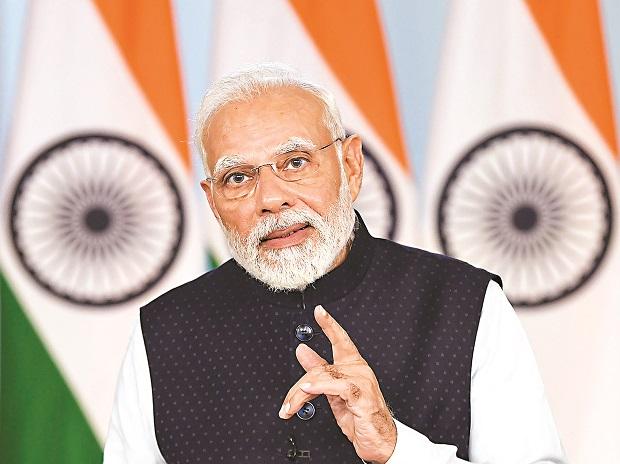[ad_1]
Prime Minister (PM) Narendra Modi at a high-level meeting on Thursday cautioned against complacency and advised masking up and taking precautionary doses amid rising Covid cases in China and other countries.
Modi told officials to strengthen surveillance measures, especially at international airports. He also stressed the need to ensure that the entire Covid infrastructure at all levels is maintained at a high level of preparedness in terms of equipment, processes, and human resources.
Modi said states must audit Covid-specific facilities to ensure operational readiness of hospital infrastructure, including oxygen cylinders, pressure swing adsorption plants, ventilators, and human resources.
The PM directed officials to ramp up testing and genomic sequencing efforts.
The meeting was also attended by Civil Aviation Minister Jyotiraditya Scindia, Home Minister Amit Shah, Health Minister Mansukh Mandaviya, and NITI Aayog Member-Health V K Paul.
A comprehensive presentation made before the PM showed that India has been witnessing a steady decline in cases, with average daily caseload falling to 153 and weekly positivity down to 0.14 per cent in the week ended December 22.
The health minister also addressed Parliament on the increasing trajectory of cases in the world. He said all international airports would start random sampling of 2 per cent of passengers to minimise the risk of a new variant entering the country.
Mandaviya said the government was monitoring the global situation, the challenge posed by multiple variants of the novel coronavirus, and undertaking required public health measures.
“Given Christmas and New Year celebrations, states also need to focus on ensuring effective awareness within the community on adherence to Covid-appropriate behaviour which includes the use of mask, hand hygiene, and respiratory hygiene practices, besides following physical distancing,” Mandaviya told the Rajya Sabha.
He said states must ensure that the coverage of precautionary doses for vaccination is increased and awareness created within communities.
States have administered 2.2 billion doses of vaccines across the country. “Ninety per cent of the eligible population has inoculated with two doses, including administering 223.5 million precautionary doses,” the health minister said.
While awaiting directions from the Centre, states, too, are swinging into action mode.
In Karnataka, the state government has decided to make face masks mandatory in closed spaces and air-conditioned rooms, said reports. Delhi also took stock of its oxygen and ambulance availability after suffering acute shortage during the second wave of the pandemic.
Delhi Chief Minister Arvind Kejriwal said while the eligible population has taken both doses, only 24 per cent have taken the precautionary dose. While assuring citizens to not panic, Kejriwal said the government is fully prepared to fight any spread.
Kerala health department, too, issued a directive to districts to be on high alert.
In Tamil Nadu, the state health department has issued an advisory to all district medical officers on precautionary measures to be taken if cases spiral out of control.
The health ministry has advised states to focus on heightened surveillance within the community and to take requisite control and containment measures.
“States have also been advised to increase whole genome sequencing of all positive cases for timely detection of newer variants, if any, circulating in the country and undertake requisite public health measures,” added Mandaviya.
Random tests at airports
Ramping up defences against Covid, from December 24, 2 per cent of total passengers in a flight will undergo random testing on arrival at airports, the health ministry has said.
In a letter to Civil Aviation Secretary Rajiv Bansal, Health Secretary Rajesh Bhushan said such travellers on each flight will be identified by the airline concerned and that they must be from different countries, preferably.
Travellers will be allowed to leave the airport after giving their sample. If positive, the report will be shared with the integrated disease surveillance programme and with state authorities for a follow-up action. Such samples will also be sent for genome sequencing.
Bhushan said while the civil aviation ministry will coordinate the testing, its cost will be borne by the health ministry. He also requested the ministry to conduct these tests at subsidised and uniform rates across all international airports.
[ad_2]
Source link



